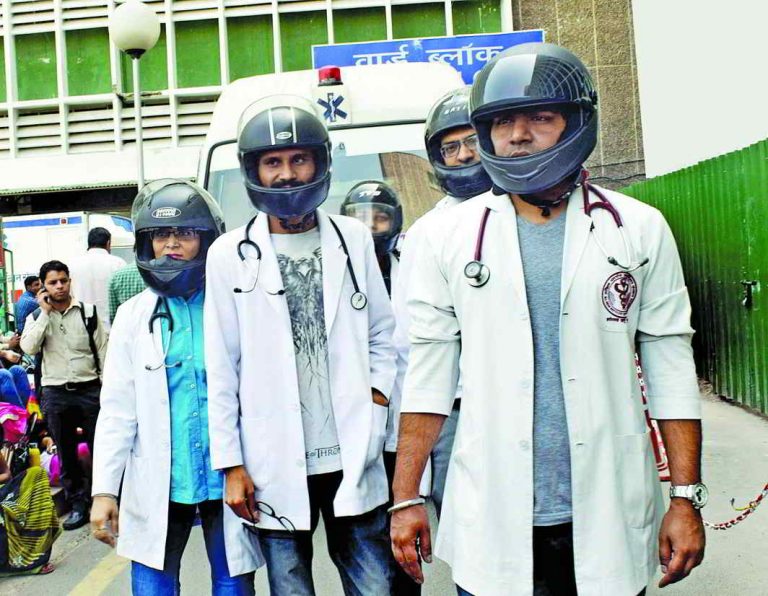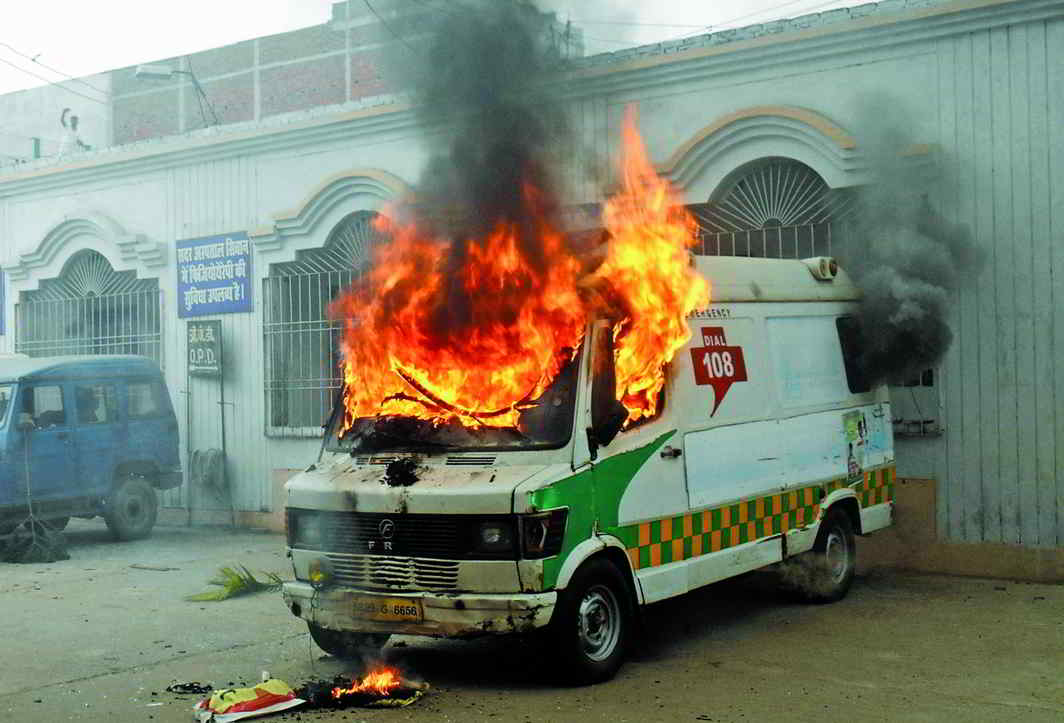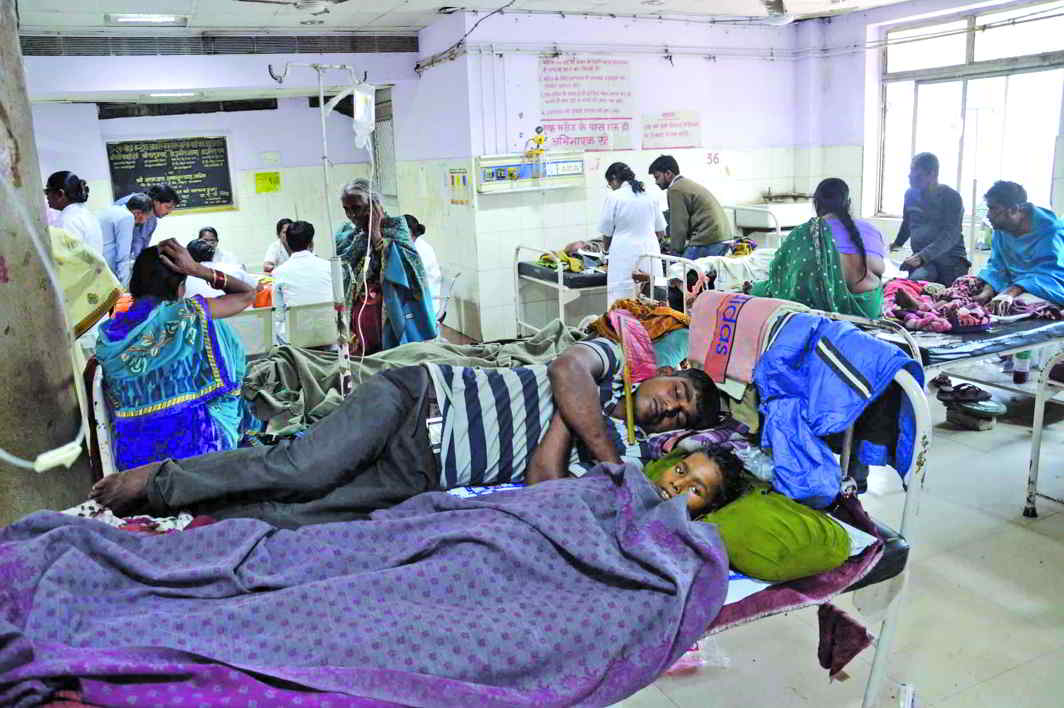
Jharkhand has proposed a bill to protect these professionals and also make them and hospitals more accountable. But how about enforcing already existing laws so that healthcare doesn’t work in a regulatory vacuum?
~By Kamal Kumar Mahawar
People working in frontline jobs such as banks and hotels would know how difficult it is to satisfy customers, not because of any personal failing on their part, but because we live in an imperfect world. And even if there was an individual failing, to err is human; and all we need to ensure is that there are systems in place to investigate them. At the same time, if there is a pattern of unprofessional behaviour against any individual or organisation, appropriate disciplinary or legal action would be justified.
When it comes to healthcare, the stakes are higher and emotions, more intense. It is, after all, a matter of life and death. Patients and relatives want sympathetic, timely care at an affordable cost and mechanisms to address failings. They want a system that is both responsive and responsible. They want a system that can be trusted to do its best most of the time, as well as have a culture of self-regulation.
Hospitals and medical professionals in India work in an environment of almost complete regulatory vacuum. When it comes to private hospitals, at least the infrastructure requirements are enforced by market forces as the paying customer will simply not choose facilities that are not up to scratch. But who can hold our public hospitals and clinics to account? Through decades of under-investment, poor management and lack of accountability, we have created a public health system that rarely puts patients first. There is nobody to monitor if wards are clean, if nurses and doctors are appropriately remunerated or trained, if essential medicines are available and if staffing is adequate. Nobody is ever held accountable for systematic failing and patients know it. They could use the legal route for grievances but everyone knows that is best avoided. This is the backdrop against which violence against doctors should be viewed.
The deal between a doctor and a society is remarkably simple. Doctors, like any other professionals, expect to work reasonable hours for respectable remuneration without any fear of violence. Patients, or the society, on the other hand, expect competent, ethical care by a group of professionals who regulate themselves and are answerable. We have currently got a vicious spiral in India where there is a race to the bottom. Society cannot ensure that there are enough well-paid jobs for doctors that reflect their years of hard work and long hours of work, and doctors on their part have failed to provide a self-regulatory mechanism that has the patient’s trust.

There is another relationship worth examining—of hospitals (public and private sector) with doctors and patients. It is the job of the hospital to ensure that all employees work without fear of violence and that there are appropriate security mechanisms in place. It is not enough to put two unarmed men on the main entrance in the name of security. Instead, what is needed is a robust system with CCTV cameras, alarms, and a fully equipped and answerable team of security personnel on the ground. Most private facilities have that already. After all, why would you invest crores in a facility and not be willing to protect it?
But this is not the case with government facilities as nobody owns or cares about them. And when it comes to the hospital’s responsibility towards patients, even in this day and age, most have no visible mechanism for patients to complain in case of unsatisfactory outcomes. Most of the violence reported in recent times has been on the premises of public hospitals. Yet, no comprehensive policy has been announced by any director or superintendent to tackle them. Even more surprisingly, they are not even held accountable by the media and legal authorities.
And now Jharkhand proposes a medical protection Bill that would make an offence against a doctor, paramedic or damage done to a hospital punishable by three years in prison and/or a fine of Rs 50,000. The bill makes doctors and hospitals accountable and their licences liable for cancellation in case of a violation of the code of ethics and other rules and regulations. The Bill makes it mandatory for doctors to attend to a patient in an emergency. A similar bill was passed by the West Bengal Government. Should this concern the medical community in India?
Health is largely a state responsibility and astute politicians in many states are quickly realising that the public mood is ripe for forced regulation of the healthcare industry that has failed to do so on its own so far. What is somewhat alarming are the kind of measures that are being suggested as well as the fact that there seems to be little desire to make state facilities more attractive or answerable. These steps should be an eye-opener for the medical profession and it looks like they are fast losing public support. There is nothing preventing governments from imposing unreasonable demands on them in such a climate.
Cases of doctors and patients’ clashes are on the rise
The government spends 1.15 percent of its GDP on healthcare—the lowest in the world. A study by the Indian Medical Association (IMA) reveals that over 70 percent of doctors have faced violence at the workplace. An opinion poll of 1,000 patients by the IMA reveals that 90 percent felt the doctors didn’t listen to them during the first consultation. While inaugurating a hospital in Kolkata, President Pranab Mukherjee also condemned the attacks on doctors.
Self-defence training is being given to nearly 1,500 doctors at a hospital in New Delhi. Starting mid-May, two black belt instructors will train the doctors in groups of 100 for six months. An advanced course is also being held.
Below are some of the recent incidents of violence faced by doctors in Maharashtra:
- March 12: A 35-year-old resident doctor Rohan Mhamunkar was brutally assaulted by a mob of relatives at the Dhule Civil Hospital.
- March 16: Three hospital employees—a trainee doctor, a medical officer and a staff nurse—allegedly assaulted by relatives of a patient who died of H1N1 in Nashik Civil Hospital.
- March 18: Dr Rohit Tated, a polio-afflicted resident doctor from Sion Hospital, was assaulted by relatives of a 60-year-old patient with chronic kidney disease.
- March 18: A group of ten people attempted to attack Dr Sarang Dave at the Parel’s Wadia hospital due to unavailability of Neo-natal Intensive Care Unit (NICU) bed. The hospital later denied the incident.
- March 19: An orthopedic junior resident at Government Medical College in Aurangabad beaten up by a patient’s relatives.
—by Ratnadeep Choudhary
The Jharkhand bill, for example, asks doctors to follow their code of ethics. Now, the code of ethics laid down by the Medical Council of India for doctors is almost impossible for any doctor to follow in its entirety and is in desperate need of amending. Other aspects of the bill can be entirely enforceable, but in reality, doctors have to earn a livelihood and hospitals are businesses. Private hospitals need to be steered away from their current culture of profiteering, and professionals (doctors and nurses) need to be paid adequately to incentivise ethical working. There are a number of regulatory and systematic steps that can be taken to achieve these objectives but forcing doctors and hospitals to work for free will not resurrect our healthcare; it will kill it.

For example, in the case of emergency treatment and deaths with unpaid bills, will the state pay the doctors and the hospitals or are we once again expecting doctors to be work altruistically? These are precisely the sort of expectations that have brought our healthcare to abysmal lows and these draconian steps will not strengthen the doctor-patient relationship; it will erode it further.
At the same time, there are many good provisions in the bill and these can be brought about by simply enforcing existing regulatory provisions for doctors and clinical establishments. Let us not forget that the Clinical Establishments Act of 2010 already exists for regulating clinical establishments. If additional provisions are required, it may be better to achieve a national consensus rather than implementing a different set of rules for each state. After all, the issues confronting our healthcare are largely similar across the country. We do not really want to create a situation where some states can work as safe havens and others find that they have killed their private healthcare by placing unreasonable demands on them.

The West Bengal government passed a similar bill to regulate doctors and clinical establishments earlier this year. This bill also seeks to make healthcare more transparent and affordable but there is room for further debate, as several provisions can be difficult to implement and kill a somewhat skewed but yet functioning industry.
Recent attempts by governments to regulate the healthcare industry, mainly the private sector, should be seen by the entire healthcare industry in India as a wake-up call. If we do not regulate ourselves, more stringent and stifling measures might be forced upon us. The medical leadership in India will lose all credibility if they only represent doctors and not patients. To be honest, they don’t even represent the interest of the profession well. For example, why don’t they argue for higher wages for doctors who typically work longer, odd hours in an inhospitable environment? Why don’t they fight to prevent exploitation of doctors by the private sector, which either employs them for peanuts or forces them to behave unethically by making them commission agents!
At the same time, governments have much to do to set their own house in order. Government hospitals cannot be allowed to function as they are simply because they are not extorting money from patients. It is primarily the responsibility of the government to ensure that people have safe and affordable healthcare and though transferring the responsibility onto others’ shoulders may seem attractive, it is unlikely to work. A comprehensive strategy that involves restructuring, rebuilding, and regulating both private and public sector healthcare facilities is needed. This will need planning and resource allocation, not knee-jerk policies.
—The writer is Consultant general and bariatric surgeon,
Sunderland Royal Hospital and author of The Ethical Doctor

